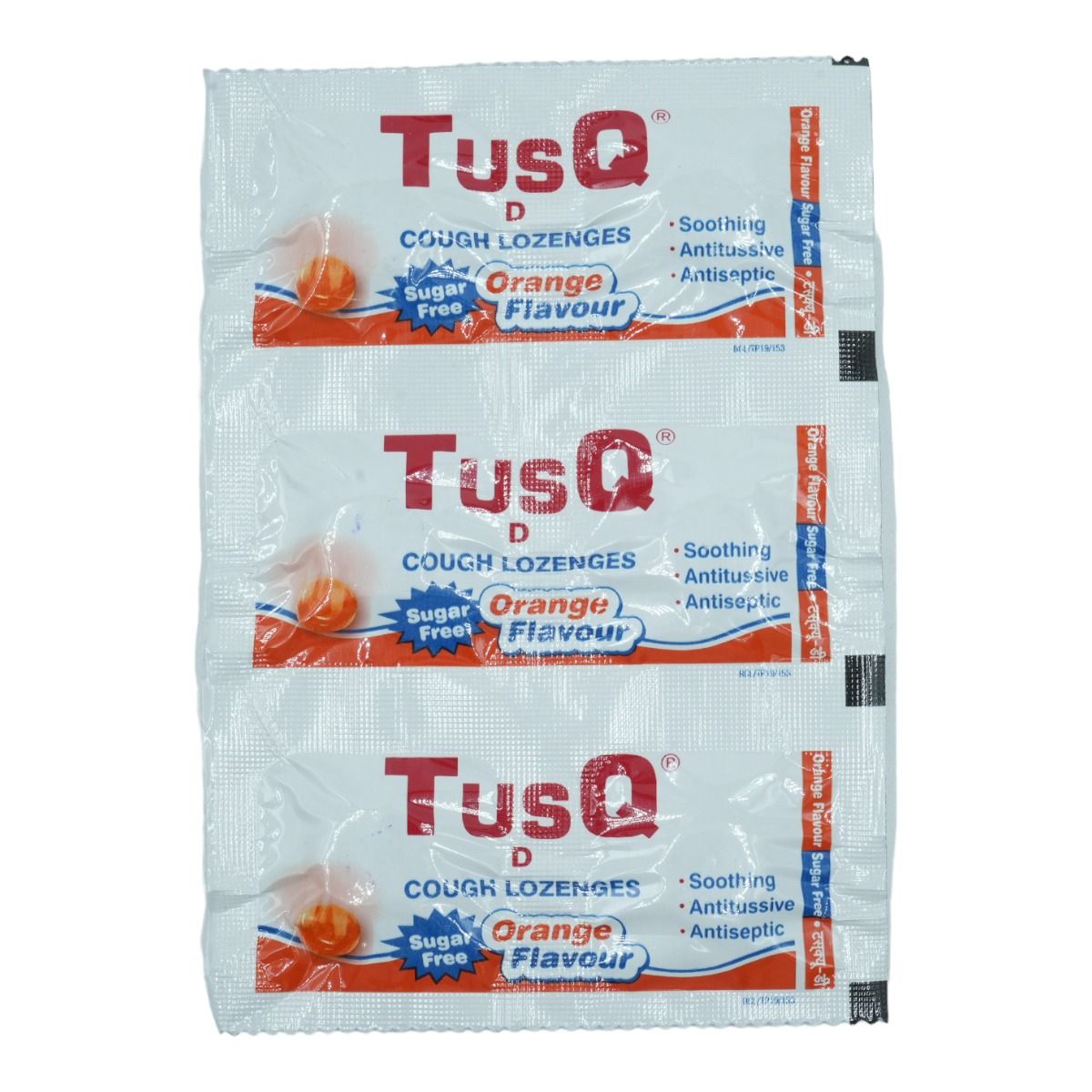Cof Q Cough Lozenges 6's
₹19.8*
MRP ₹22
10% off
₹18.7*
MRP ₹22
15% CB
₹3.3 cashback(15%)
Free Delivery
With Circle membership
(Inclusive of all Taxes)
This offer price is valid on orders above ₹800. Apply coupon PHARMA10/PHARMA18 (excluding restricted items)
Know Your Delivery Time
Provide Delivery Location

Whats That

Secure Payment

India's Most Trusted Pharmacy

Genuine Products
Composition :
Manufacturer/Marketer :
Consume Type :
Return Policy :
Expires on or after :
About Cof Q Cough Lozenges
Cof Q Cough Lozenges is used to treat dry cough associated with cold/flu, allergies, and throat irritants. A cough is a reflex action that helps to clear any foreign material or irritants in the throat. A dry cough refers to a cough with no mucus (sputum) or secretions. A dry cough is mostly treated with cough suppressants and throat lozenges.
Cof Q Cough Lozenges is a combination of two medicines: Dextromethorphan and Amylmetacresol. Dextromethorphan is a cough suppressant. It acts by blocking the cough centre's action in the brain, which is responsible for the cough reflex. Amylmetacresol is an antiseptic. It acts by stopping bacterial growth, which is causing mouth and throat infections. It can provide relief from a sore throat, which is usually accompanied by a dry cough.
You should take this medicine as prescribed by your doctor. The common side effects of Cof Q Cough Lozenges are dizziness, drowsiness, sleepiness, confusion, nausea, agitation, and sore tongue. These side effects usually go away without any treatment. However, inform your doctor immediately if any of these side effects persist or worsen.
Do not take Cof Q Cough Lozenges if you are allergic to Dextromethorphan, Amylmetacresol, or any other ingredients present in it. Before taking Cof Q Cough Lozenges, inform your doctor if you have any chronic (long-term) or persistent cough, lung diseases such as asthma or emphysema, liver diseases, or taking antidepressants within 14 days before taking this medicine. Cof Q Cough Lozenges contains sugars, so inform your doctor if you have diabetes or intolerance to sugars. Cof Q Cough Lozenges is not recommended for children under 6 years of age. Also, inform your doctor if you are pregnant or breastfeeding.
Uses of Cof Q Cough Lozenges
Medicinal Benefits
Cof Q Cough Lozenges is a combination of two medicines: Dextromethorphan and Amylmetacresol. Dextromethorphan is a cough suppressant. It acts by blocking the cough centre's action in the brain, which is responsible for the cough reflex. Amylmetacresol is an antiseptic and has bactericidal action. It acts by killing the bacteria, which is causing mouth and throat infections. It can provide relief from a sore throat, which is often accompanied by a dry cough. Together, Cof Q Cough Lozenges can effectively treat dry cough.
Side Effects of Cof Q Cough Lozenges
- Dizziness
- Drowsiness
- Sleepiness
- Confusion
- Stomach upset
- Nausea
- Agitation
- Sore tongue
Directions for Use
Storage
Drug Warnings
Do not take Cof Q Cough Lozenges if you have taken antidepressants (especially monoamine oxidase (MAO) inhibitors and selective serotonin reuptake inhibitors (SSRIs)) within 14 days as it may cause life-threatening side-effects. Cof Q Cough Lozenges should be used with caution in children with a history of allergies. Do not use any other cough or cold medicines while using Cof Q Cough Lozenges. Do not use Cof Q Cough Lozenges for prolonged periods as it may lead to drug dependence, even at recommended doses, especially in patients with a history of alcohol abuse and depression. Cof Q Cough Lozenges may cause withdrawal symptoms such as restlessness, sweating, palpitations (pounding heart), chills, agitation, difficulty to sleep, nausea, and vomiting.
Therapeutic Class
Diet & Lifestyle Advise
- Avoid smoking as it may worsen your cough. Avoid second-hand or passive smoking too.
- Drink plenty of water to decrease throat irritation.
- Use a humidifier to moisten the air.
- Gargle with salt-water and have honey as they may help to suppress the cough.
- Avoid caffeinated and cold drinks as these may worsen the cough.
Habit Forming
How Cof Q Cough Lozenges Works
What if I have taken an overdose of Cof Q Cough Lozenges
Alcohol
Caution
Consumption of alcohol may increase drowsiness, so it is advised to limit alcohol intake while using Cof Q Cough Lozenges.
Pregnancy
Caution
Cof Q Cough Lozenges is a category C medicine and may cause toxic effects to the unborn baby. So, it should be used with caution in pregnant women only when prescribed by a doctor.
Breast Feeding
Caution
Cof Q Cough Lozenges may get secreted in the breast milk, so this medicine should be used with caution in breastfeeding mothers only when prescribed by a doctor.
Driving
Caution
Cof Q Cough Lozenges may cause drowsiness, so it is advised to refrain from activities that require you to stay alert such as driving or operating heavy machinery while using this medicine.
Liver
Caution
Cof Q Cough Lozenges should be used with caution in patients with liver diseases as the activity of this medicine may increase in these patients. The dose may have to be adjusted by your doctor.
Kidney
Safe if prescribed
Cof Q Cough Lozenges is possibly safe in patients with kidney diseases when prescribed.
Children
Caution
Cof Q Cough Lozenges is not recommended for children under 6 years of age as this medicine may cause toxic effects in the children. So, it is advised to consult a child specialist before using Cof Q Cough Lozenges in children.
Country of origin
Manufacturer/Marketer address
Author Details
We provide you with authentic, trustworthy and relevant information
FAQs
Disclaimer
Product Substitutes











